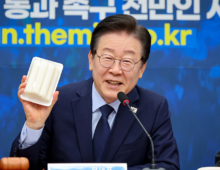Fears of abandonment have spurred quest for stronger nuclear assurances, but ROK faces dearth of alternative partners
South Korea, a longstanding treaty ally of Washington, has long relied on the U.S. military’s extended nuclear deterrence to thwart any potential North Korean attack or use of nuclear weapons against it.
But there’s burgeoning uncertainty among ROK political elites about the U.S. defense commitment to Seoul, with many continuing to harbor fears of potential abandonment. As a result, analysts across the ideological spectrum are increasingly endorsing the idea of developing or acquiring an independent nuclear deterrent.
South Korea, a longstanding treaty ally of Washington, has long relied on the U.S. military’s extended nuclear deterrence to thwart any potential North Korean attack or use of nuclear weapons against it.
But there’s burgeoning uncertainty among ROK political elites about the U.S. defense commitment to Seoul, with many continuing to harbor fears of potential abandonment. As a result, analysts across the ideological spectrum are increasingly endorsing the idea of developing or acquiring an independent nuclear deterrent.
Get 30 days
of free access to
KoreaPro
-
Full access to all analysis
-
The KOREA PRO newsletter, every business day
-
Daily analysis on the top story of the day
-
The ability to suggest topics for coverage by our specialist team
Be smart about South Korea
Get full access to expert analysis and opinion.
Start
now
No charges during your trial. Cancel anytime. A paid subscription will start after 30 days.
© Korea Risk Group. All rights reserved.
No part of this content may be reproduced, distributed, or used for
commercial purposes without prior written permission from Korea Risk
Group.












